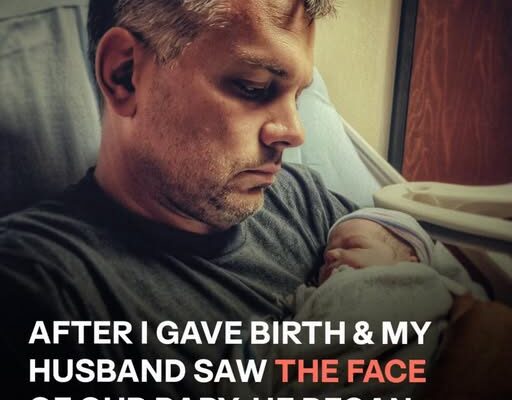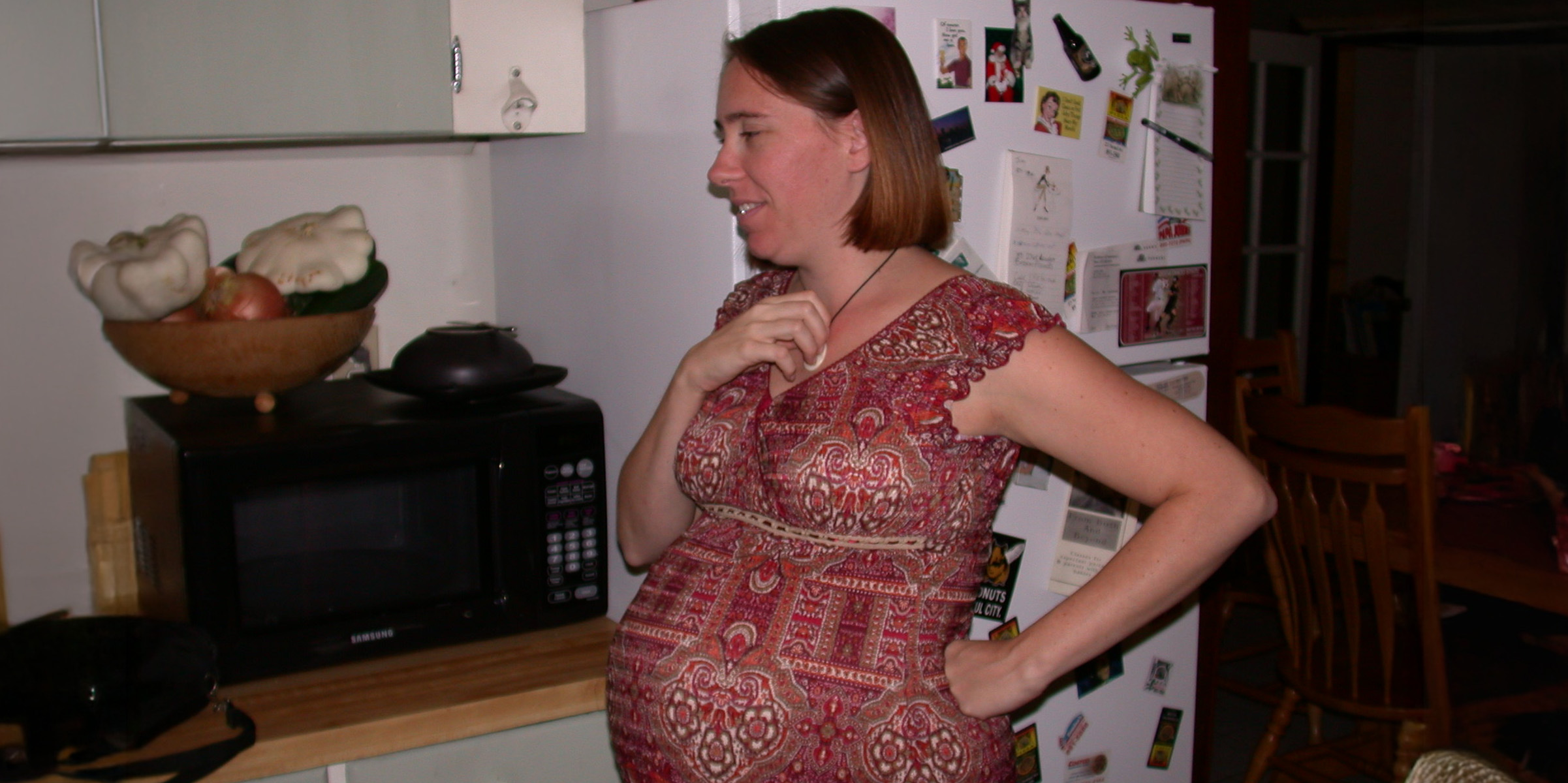
When Julia nearly dies during childbirth, she expects her husband to be her rock during recovery. Instead, Ryan becomes distant and starts disappearing every night after seeing their newborn daughter’s face. What could possibly drive a new father to abandon his family when they need him most?
I almost died bringing my daughter into this world, and I thought that would be the scariest part of becoming a mother. I was wrong.
The labor lasted 18 grueling hours. Everything that could go wrong did go wrong.
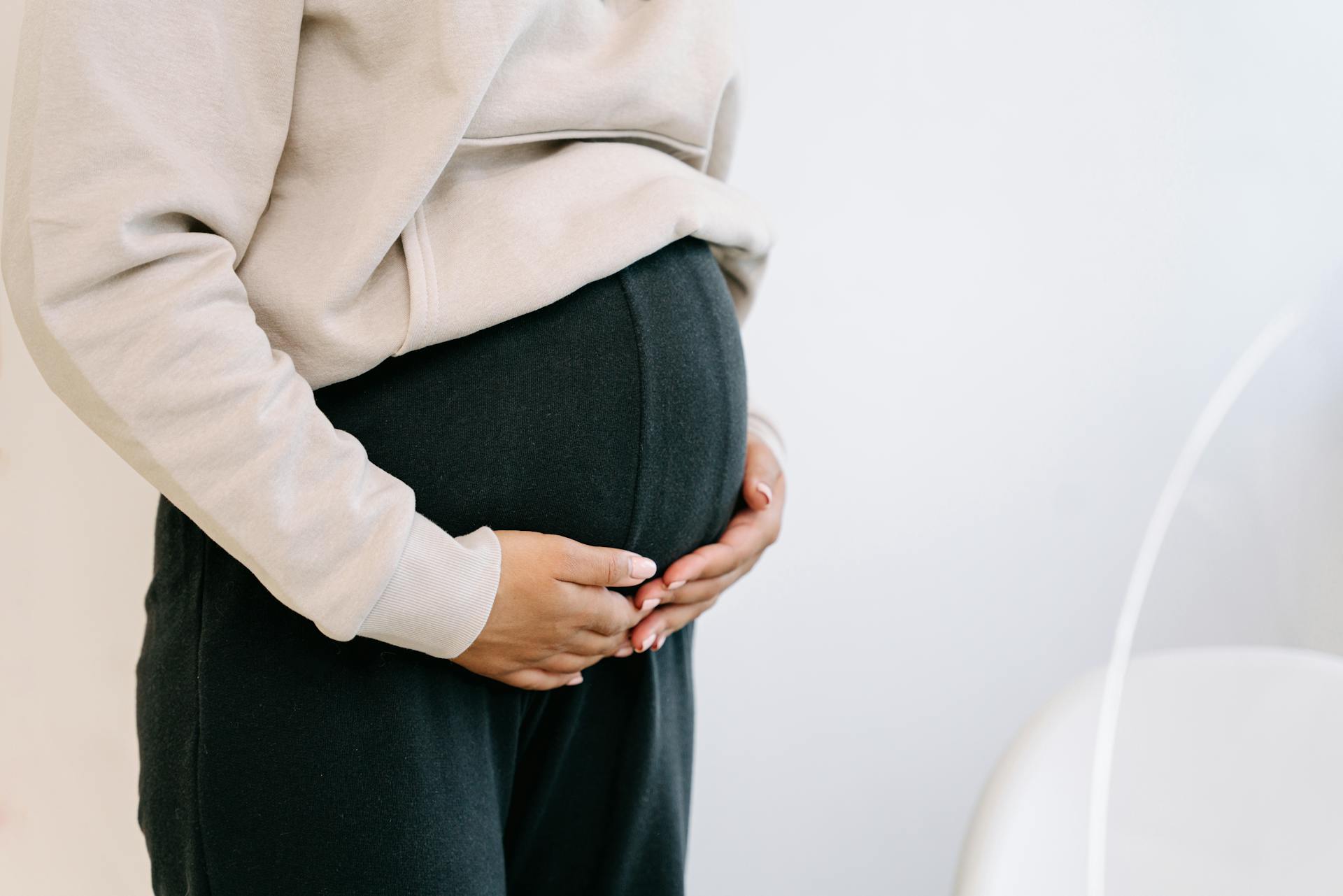
A pregnant woman
My blood pressure spiked, then crashed. The steady beeping of monitors became frantic alarms, and I watched the medical team exchange those looks that no patient ever wants to see.
“We need to get this baby out now,” Dr. Martinez said, her voice calm but urgent.
I remember gripping Ryan’s hand so tightly I thought I might break his fingers. He kept whispering in my ear, “Stay with me, Julia. Stay with me. I can’t do this without you.”
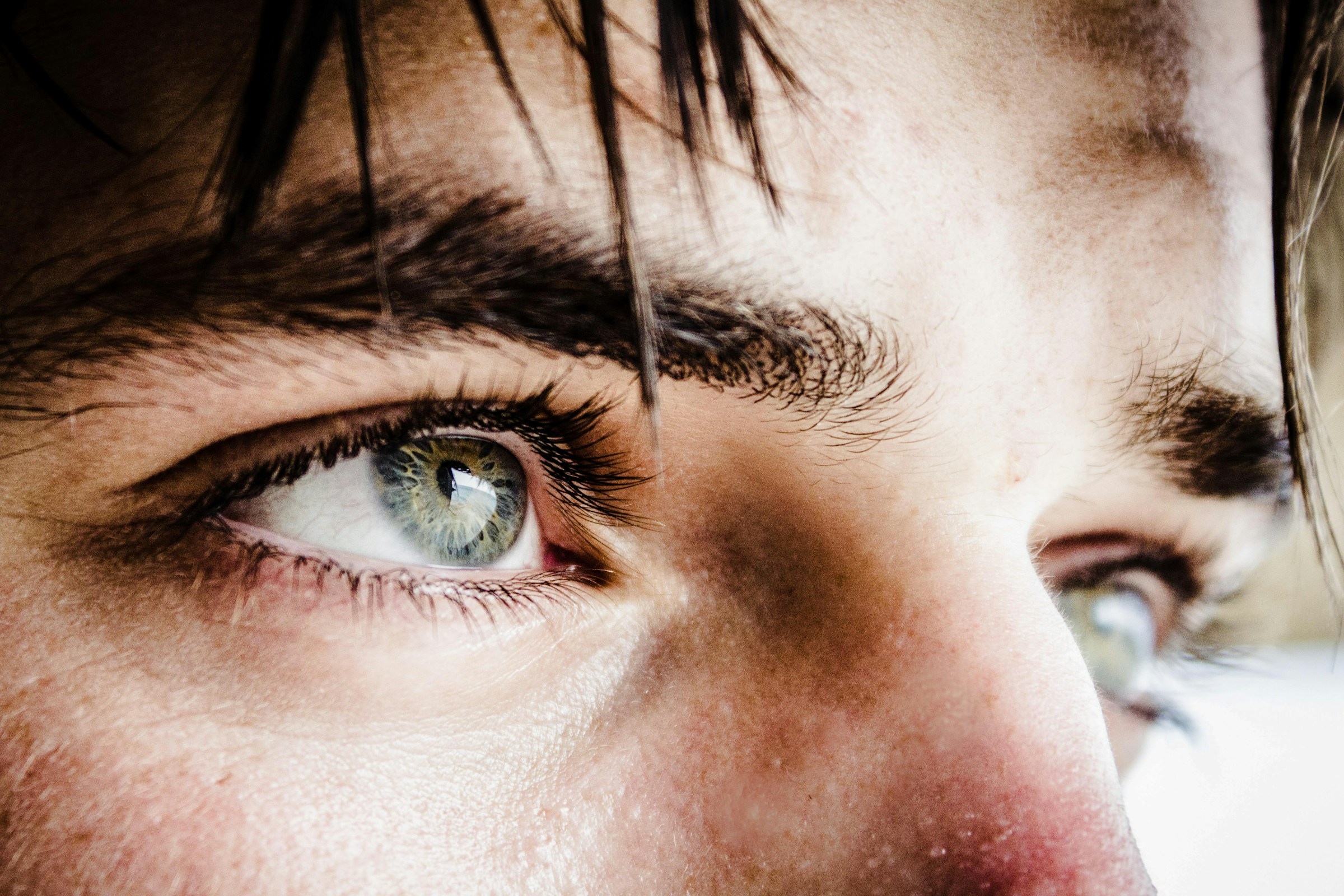
A close-up shot of a man’s eyes
For a moment, everything went black.
The pain disappeared, the noise faded, and I felt like I was floating away from everything. But somehow, I fought my way back. Maybe it was Ryan’s voice anchoring me, or maybe it was pure stubborn determination to meet our baby.
When I finally woke up hours later, the first thing I saw was Ryan’s exhausted face hovering over me.
His eyes were red-rimmed from crying, his hair was a complete mess, and he looked like he’d aged ten years in one night.
“She’s here,” he whispered, his voice thick with emotion. “She’s perfect.”
That’s when the nurse brought our daughter over. Lily.

A baby
She was seven pounds and two ounces of absolute perfection.
“Do you want to hold her?” I asked Ryan.
He nodded and carefully took Lily from the nurse. But as he looked down at her face, something strange happened.
His expression shifted from joy to something I couldn’t quite identify. It was like a shadow passed over his features.
He stared at her for a long moment, then quickly handed her back to me.
“She’s beautiful,” he said, but his voice sounded forced. “Just like her mama.”
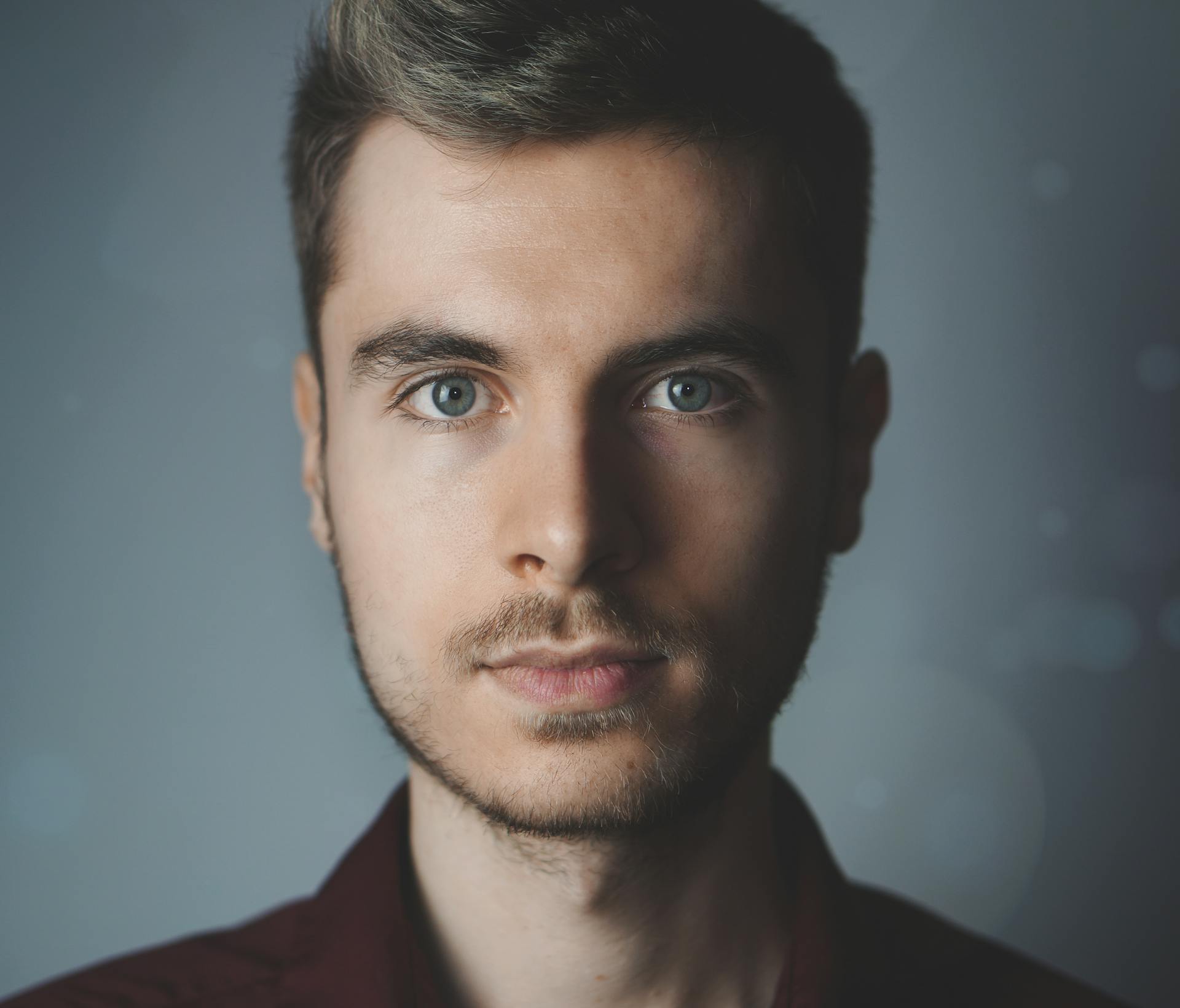
A man looking straight ahead | Source: Pexels
Over the next few days in the hospital, I chalked up his weird behavior to exhaustion. We’d both been through hell, after all.
But as we settled into life at home, things got worse.
Ryan stopped looking directly at Lily when he held her. He’d feed her or change her diaper, but his eyes would focus somewhere just over her head, like he was avoiding her gaze.
When I tried to take those sweet newborn photos that every couple posts on social media, he’d make excuses to leave the room.
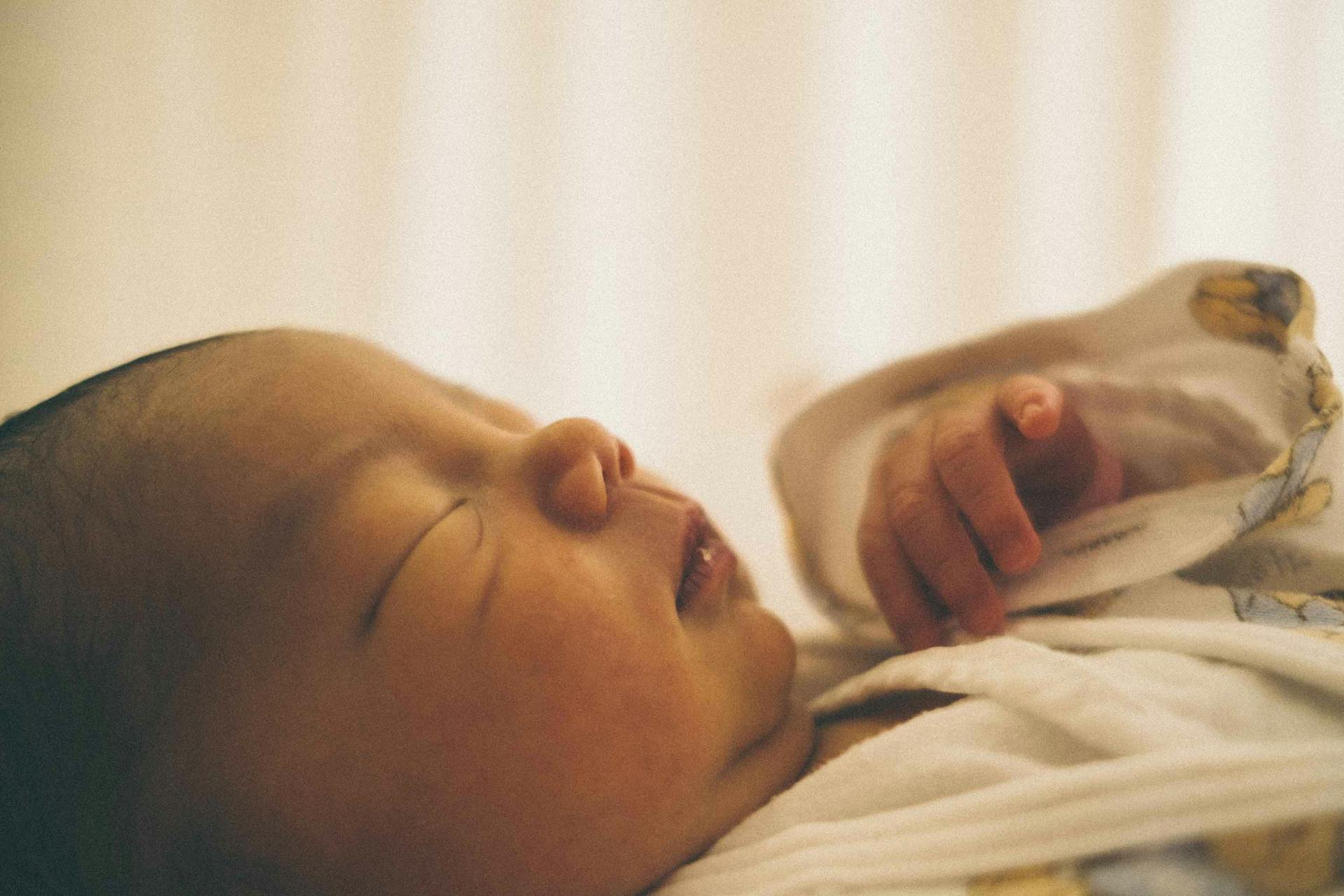
A baby sleeping | Source: Pexels
“I need to check the mail,” he’d say, or “I should start dinner.”
However, the real red flag emerged about two weeks after we returned home. I’d wake up in the middle of the night to an empty bed and the sound of our front door closing quietly.
The first time it happened, I assumed he was getting fresh air or checking something outside. New parent anxiety, maybe.
By the fifth night, I knew something was seriously wrong.

A doorknob | Source: Pexels
“Ryan, where were you last night?” I asked him over breakfast, trying to keep my voice casual.
“Couldn’t sleep,” he said, his gaze glued to his coffee. “Went for a drive.”
That’s when I made a decision that would change everything. If my husband was sneaking out every night while I was home alone with our newborn, I was going to find out exactly where he was going.
The next night, I pretended to fall asleep early. I lay perfectly still, listening to Ryan’s breathing beside me until it became deep and steady.
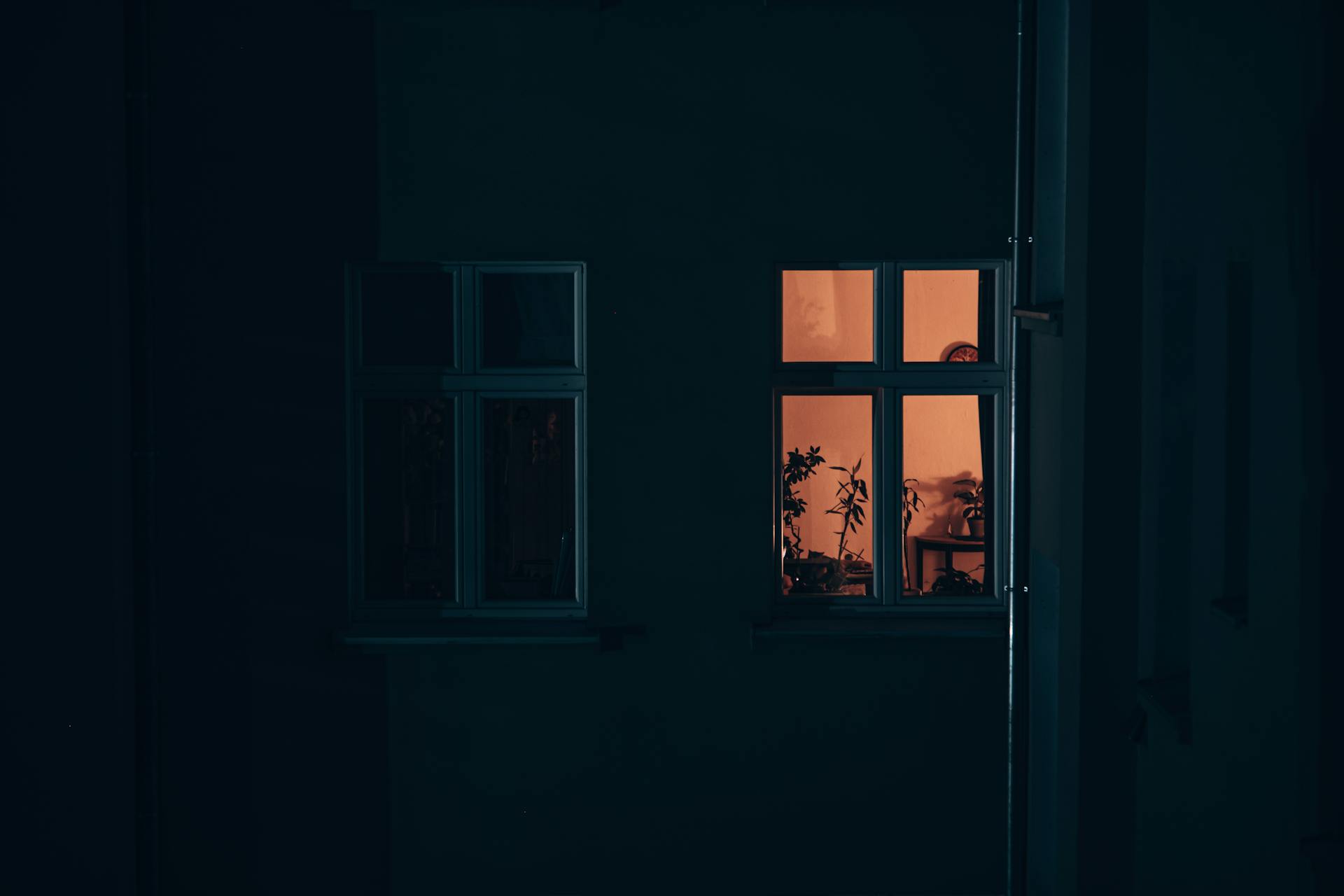
A window at night | Source: Pexels
Around midnight, just like clockwork, I heard him slip out of bed. The floorboards creaked softly as he tiptoed down the hallway.
My heart hammered against my ribs as I waited for the front door to close. Once I was sure he’d left, I sprang into action.
I quickly threw on jeans and a hoodie, grabbed my keys, and crept outside. Ryan’s car was already backing out of our driveway.
I waited until he turned the corner before starting my own car and following at a safe distance.

A car’s taillights at night | Source: Pexels
He drove for what felt like forever.
Through our suburban neighborhood, past the shopping plaza where we used to get ice cream on date nights, and beyond the city limits, into areas I barely recognized.
Finally, after nearly an hour of driving, Ryan pulled into the parking lot of what looked like an old community center. The building was run-down, with peeling paint and a flickering neon sign that read “Hope Recovery Center.”
A few other cars were scattered around the lot, and I could see warm light spilling from the windows.

A street at night | Source: Pexels
I parked behind a large truck and watched as Ryan sat in his car for several minutes, like he was gathering courage. Then he got out and walked toward the building with his shoulders hunched forward.
What was this place? Was my husband sick? Was he having an affair? My mind raced through every terrible possibility.
I waited another ten minutes before creeping closer to the building. Through a partially open window, I could hear voices.
It sounded like multiple people were talking in a circle.

Two men talking | Source: Pexels
“The hardest part,” I heard a man’s voice say, “is when you look at your kid and all you can think about is how you almost lost everything that matters.”
My eyes widened in shock. I knew that voice very well.
I moved closer to get a better look through the window.
Inside, about 12 people sat in folding chairs arranged in a circle. And there, directly in my line of sight, was Ryan.
His head was in his hands, and his shoulders were shaking.
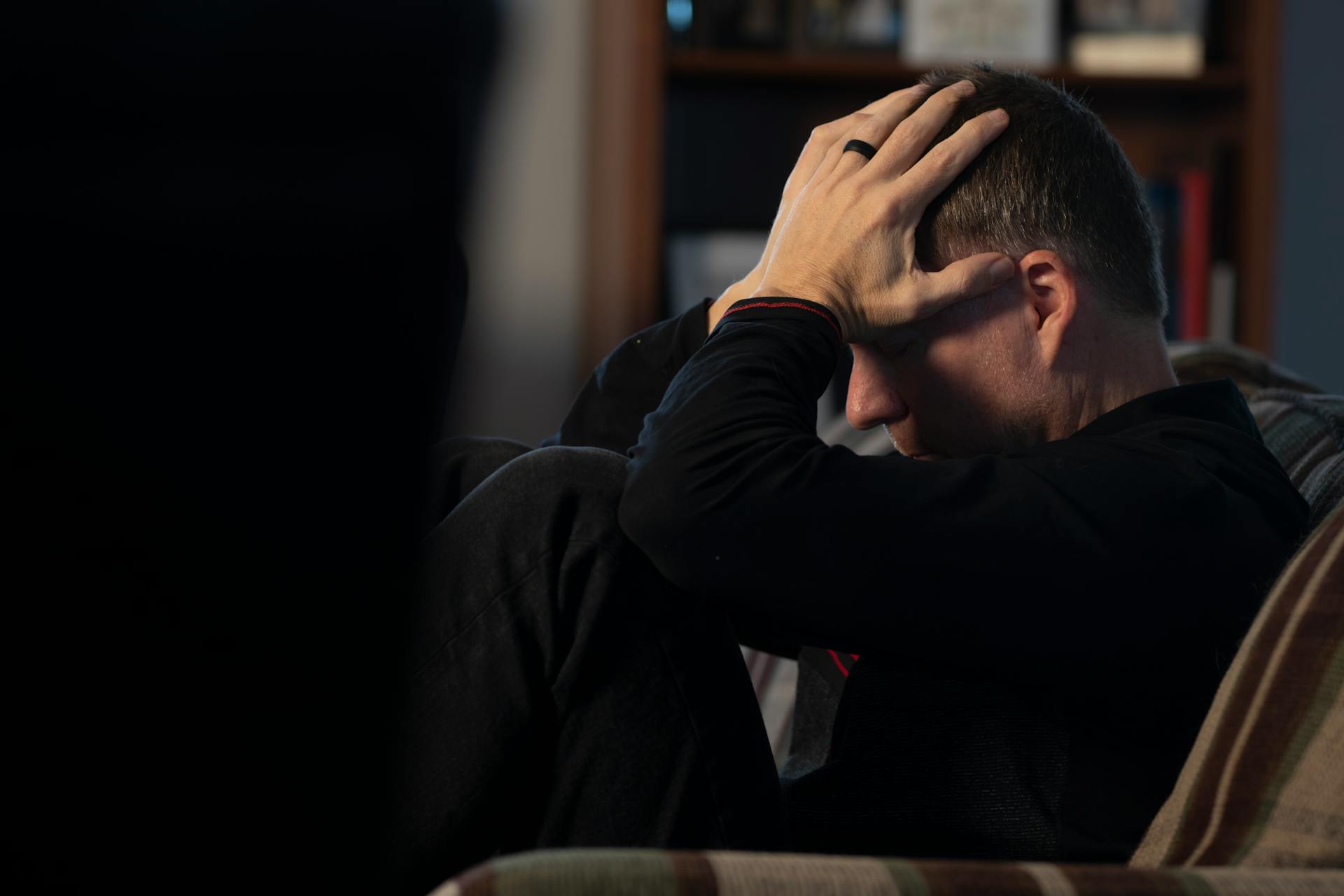
An upset man | Source: Pexels
“I keep having these nightmares,” he was saying to the group. “I see her in pain. I see the doctors rushing around. I see myself holding this perfect baby while my wife is dying right next to me. And I feel so angry and helpless that I can’t even look at my daughter without remembering that moment.”
A woman across the circle nodded sympathetically. “Trauma affects everyone differently, Ryan. What you’re experiencing is completely normal for partners who witness difficult births.”
Ryan lifted his head, and I could see tears streaming down his face. “I love my wife more than anything in this world. And I love my daughter. But every time I look at Lily, all I can see is how close I came to losing Julia. How I was completely powerless to help her. I’m terrified that if I get too attached to this beautiful life we’ve built, something will happen to destroy it again.”
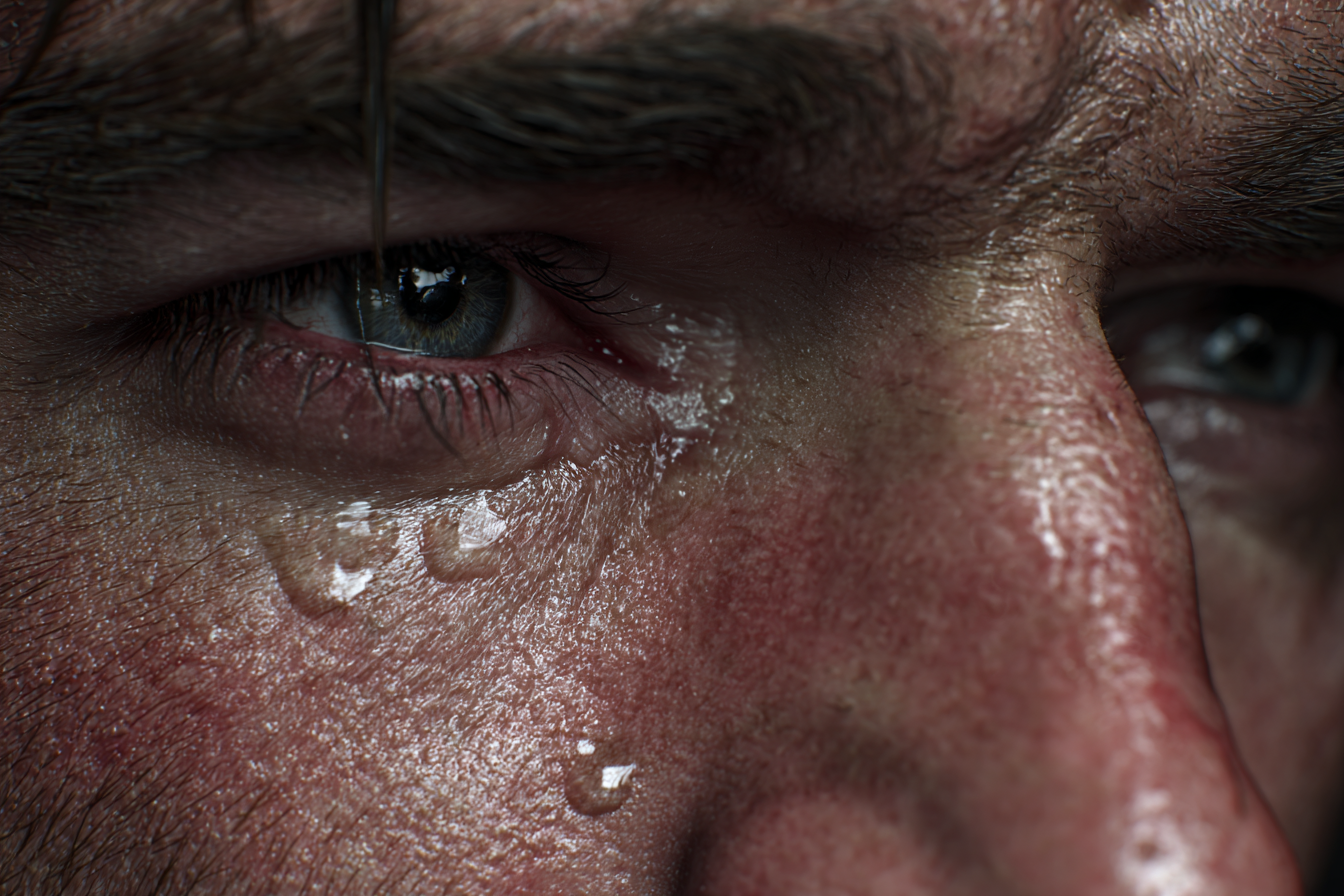
A man crying | Source: Midjourney
The group leader, an older woman with kind eyes, leaned forward. “Fear of bonding after trauma is one of the most common responses we see here. You’re not broken, Ryan. You’re healing.”
I sank down below the window, my own tears flowing freely now. This wasn’t about another woman. This wasn’t about him not loving us. This was about a man so traumatized by almost losing his wife that he couldn’t bear to embrace the joy of his new daughter.
All this time, while I’d been wondering if he regretted having Lily, he’d been secretly getting help to become the father she deserved.
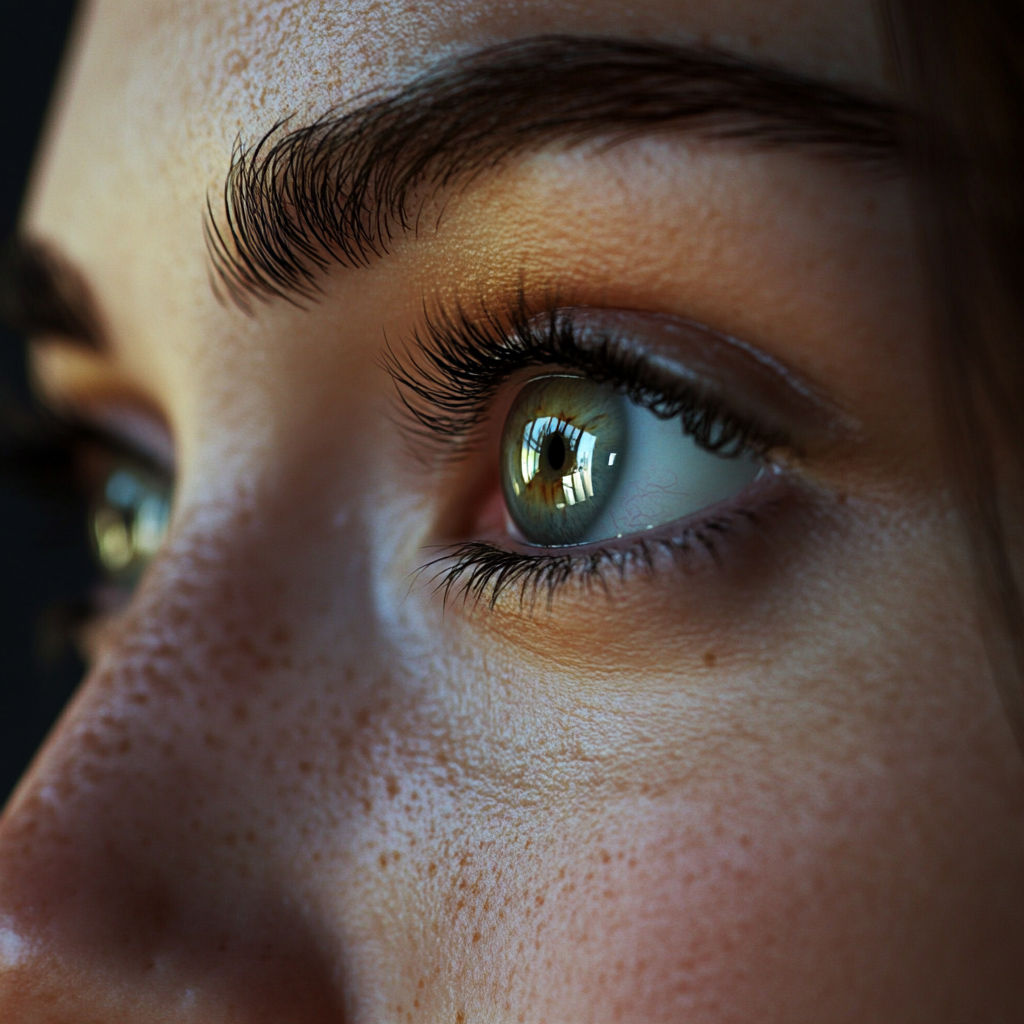
A close-up shot of a woman’s face | Source: Midjourney
I crouched beneath that window for another 30 minutes, listening to my husband pour his heart out to a room full of strangers.
He talked about the nightmares that kept him awake. He described how he’d replay those terrifying moments in the delivery room over and over again. He even admitted that he’d been avoiding skin-to-skin contact with Lily because he was afraid his fear would somehow transfer to her.
“I don’t want her to sense my anxiety,” he told the group. “Babies can feel that stuff, right? I’d rather keep my distance until I can be the father she deserves.”
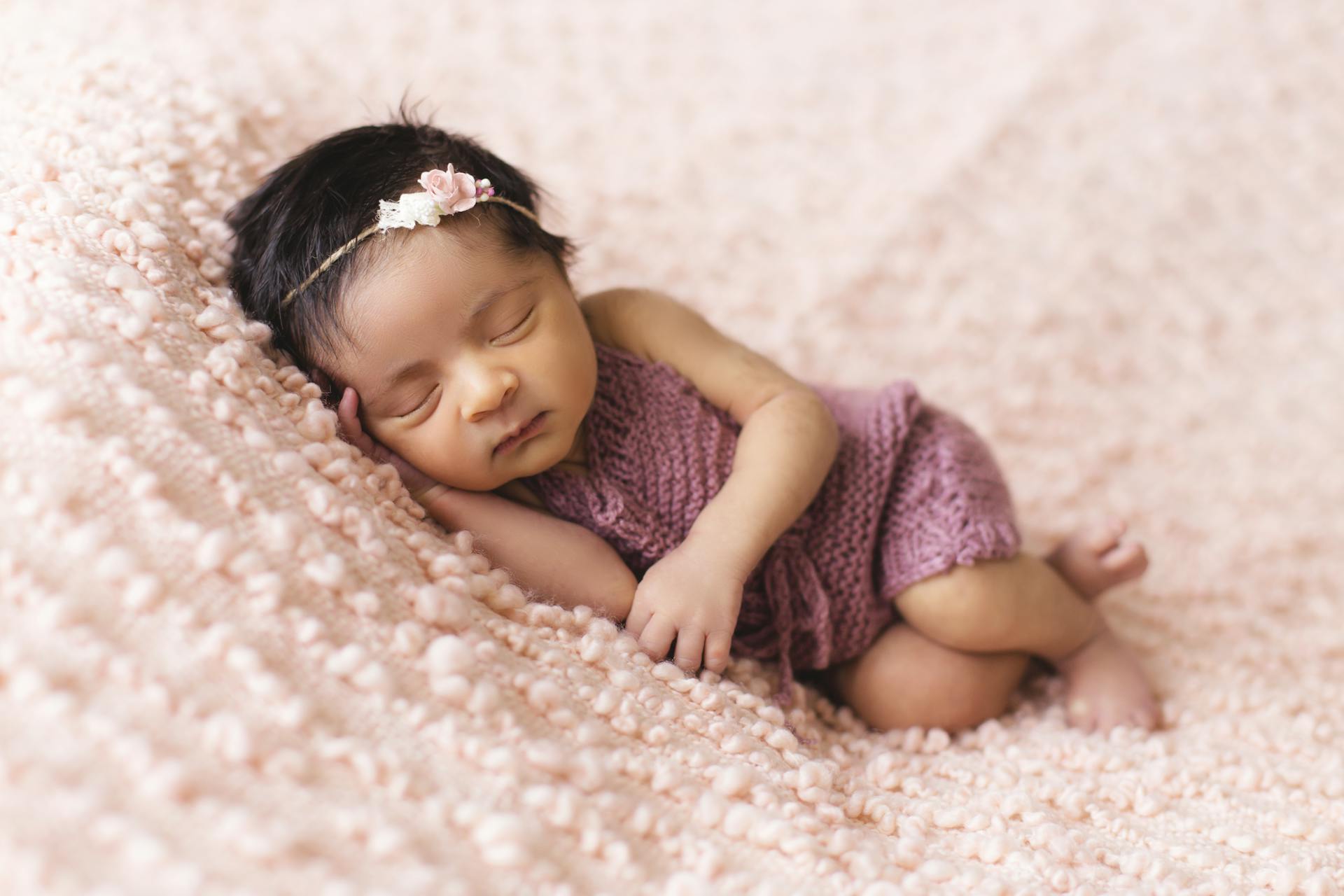
A baby girl | Source: Pexels
The group leader nodded knowingly. “What you’re doing takes incredible strength, Ryan. But healing isn’t something you have to do alone. Have you considered including Julia in this process?”
Ryan shook his head quickly. “She almost died because of this pregnancy. The last thing she needs is to worry about my mental health on top of everything else. She’s been through enough.”
My heart broke into a million pieces right there in that parking lot. How was Ryan dealing with all this himself?
When the meeting ended, I rushed back to my car and drove home as fast as I could.

The view from a car driving on the road | Source: Pexels
I needed to be in bed before Ryan got back, but more importantly, I needed time to process what I’d just learned.
The next morning, I made a decision. While Ryan was at work and Lily was napping, I called the Hope Recovery Center.
“Hi,” I said when someone answered. “My name is Julia. I think my husband has been attending your support group meetings, and I’d like to know if there’s a way I can be involved.”
The receptionist was incredibly kind. “We have a partners’ support group that meets on Wednesday evenings. Would you be interested in attending?”
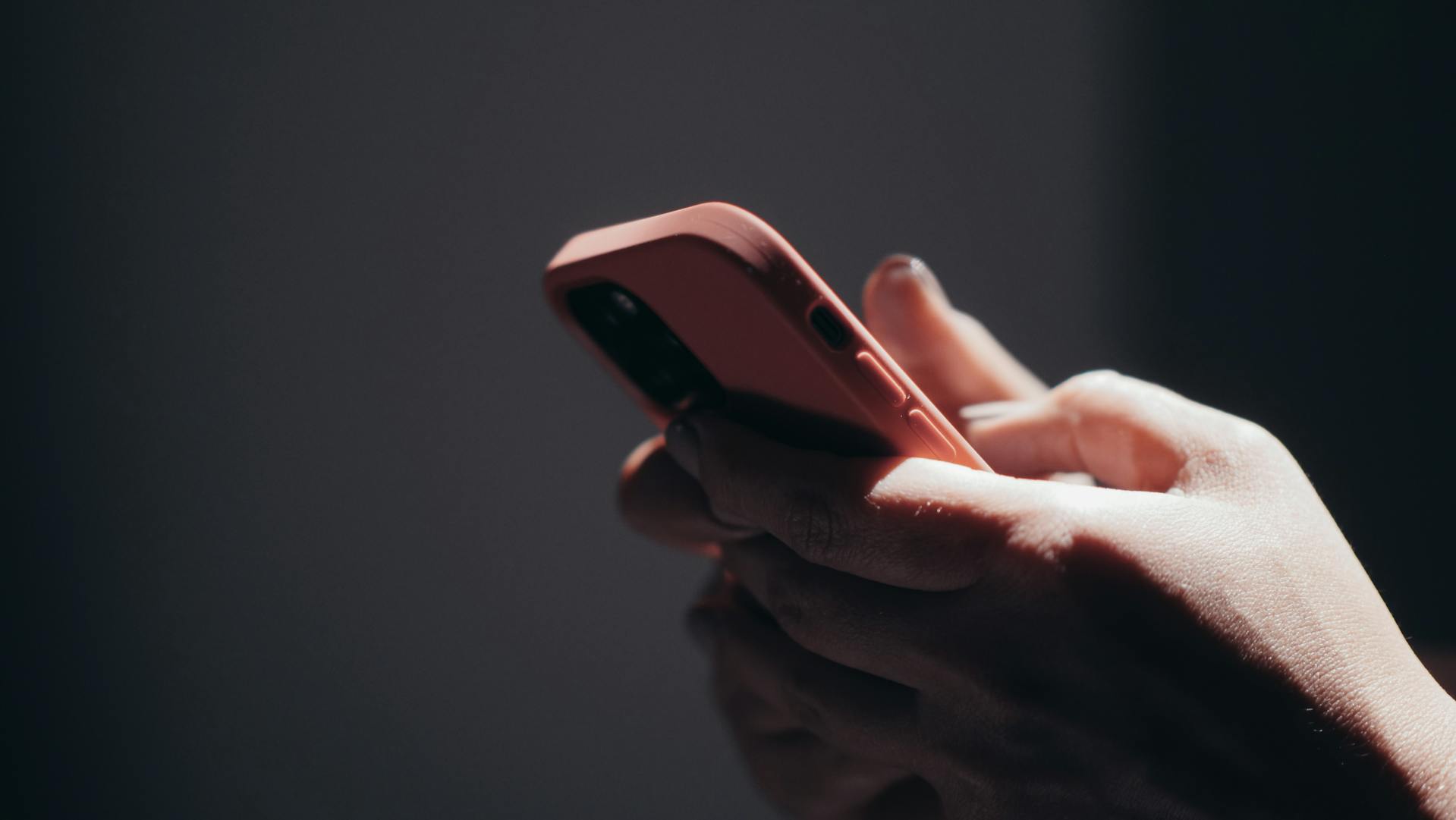
A woman using her phone
“Yes,” I said without hesitation. “I’ll be there.”
That Wednesday, I arranged for my sister to watch Lily and drove to the community center. My palms were sweating as I walked into a different room from the one where Ryan met with his group.
About eight women sat in a circle, and I recognized immediately that they all had the same haunted look I’d been carrying for weeks.
“I’m Julia,” I said when it was my turn to introduce myself. “My husband has been coming here because our daughter’s birth was traumatic. But I think I need help too. I’ve been feeling so alone and confused.”

A close-up shot of a woman’s face
A woman named Sarah smiled at me warmly. “Birth trauma affects both parents, Julia. You’re in the right place.”
Over the next hour, I learned that what Ryan and I had been experiencing was textbook post-traumatic stress. The nightmares, the avoidance behaviors, and the emotional distance… it was all part of how the mind tries to protect itself after witnessing something terrifying.
“The good news,” our group leader explained, “is that with proper support and communication, couples can work through this together and come out stronger.”
When I left that meeting, I felt hope for the first time in weeks. I had a plan.

A woman walking away
That night, I waited until Ryan got home from his support group meeting. He looked surprised to find me awake in the living room, holding Lily.
“We need to talk,” I said gently.
His face went pale. “Julia, I—”
“I followed you,” I interrupted. “I know about the therapy. I know about the trauma group.”
Ryan sank into the chair across from me, looking defeated. “I didn’t want you to worry. You’ve been through enough.”
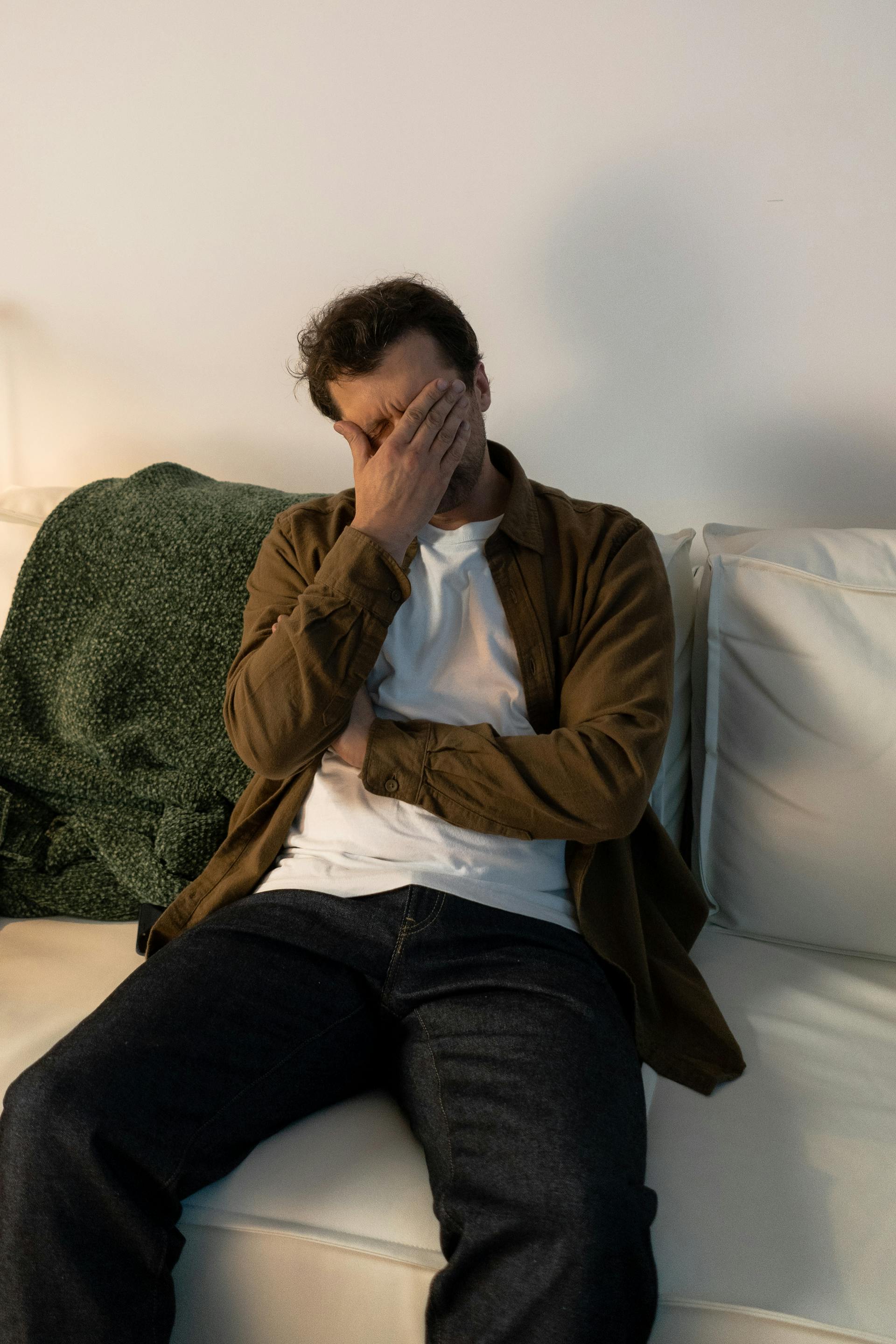
A man sitting on a couch
I stood up and sat beside him, still holding our sleeping daughter. “Ryan, we’re supposed to be a team. We can heal from this together.”
At that point, he finally looked directly at Lily.
“I was so scared of losing you both,” he said, touching her hand.
“You don’t have to be scared alone anymore,” I whispered.
Two months later, we’re both attending couples counseling.
Ryan holds Lily every morning now, and when I catch him staring at her with pure love instead of fear, I know we’re going to be okay.
Sometimes the darkest nights really do lead to the brightest dawns.
If you enjoyed reading this story, here’s another one you might like: For 16 years, I endured my mother-in-law’s sharp tongue and cold disdain, convinced she simply despised me. But the truth wasn’t about me at all. Hidden letters uncovered a secret that explained her venom, and what I discovered was far more shocking than I could have ever imagined.
This work is inspired by real events and people, but it has been fictionalized for creative purposes. Names, characters, and details have been changed to protect privacy and enhance the narrative. Any resemblance to actual persons, living or dead, or actual events is purely coincidental and not intended by the author.
The author and publisher make no claims to the accuracy of events or the portrayal of characters and are not liable for any misinterpretation. This story is provided “as is,” and any opinions expressed are those of the characters and do not reflect the views of the author or publisher.
